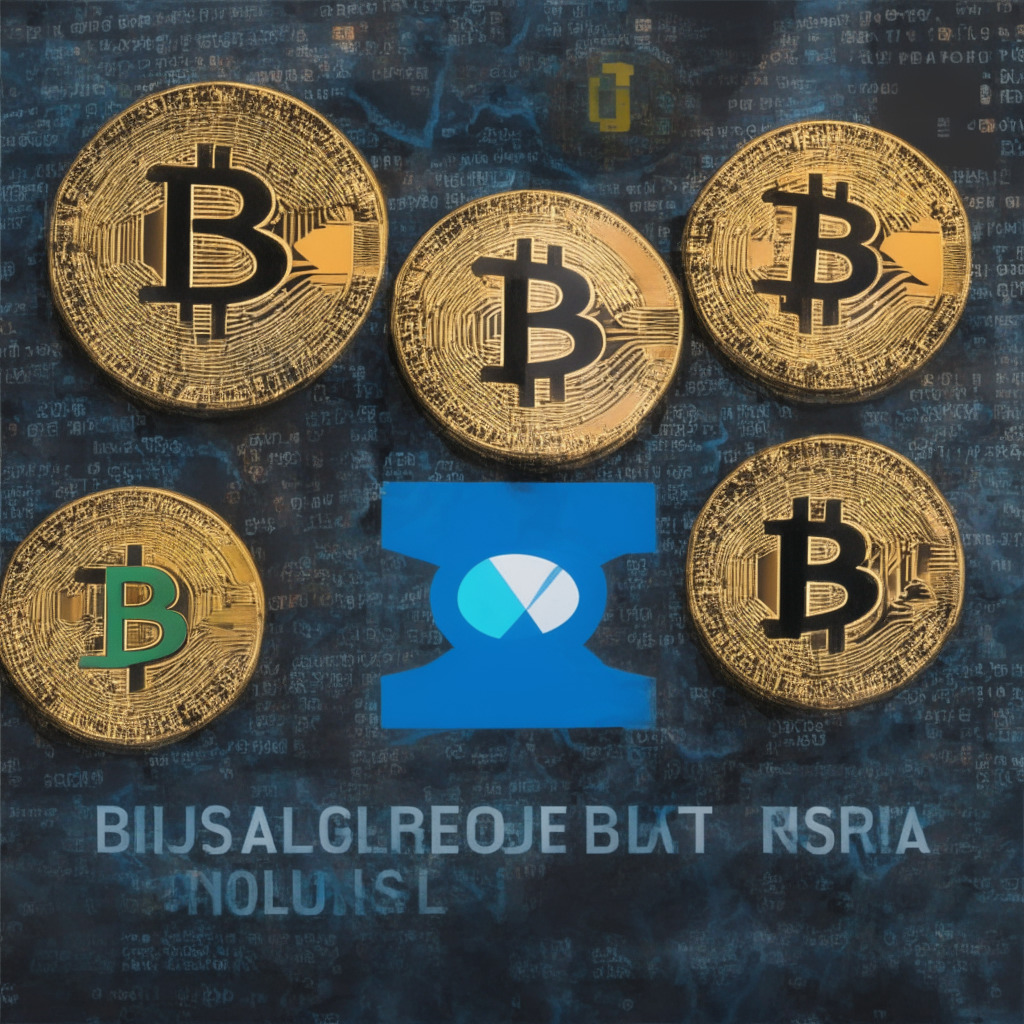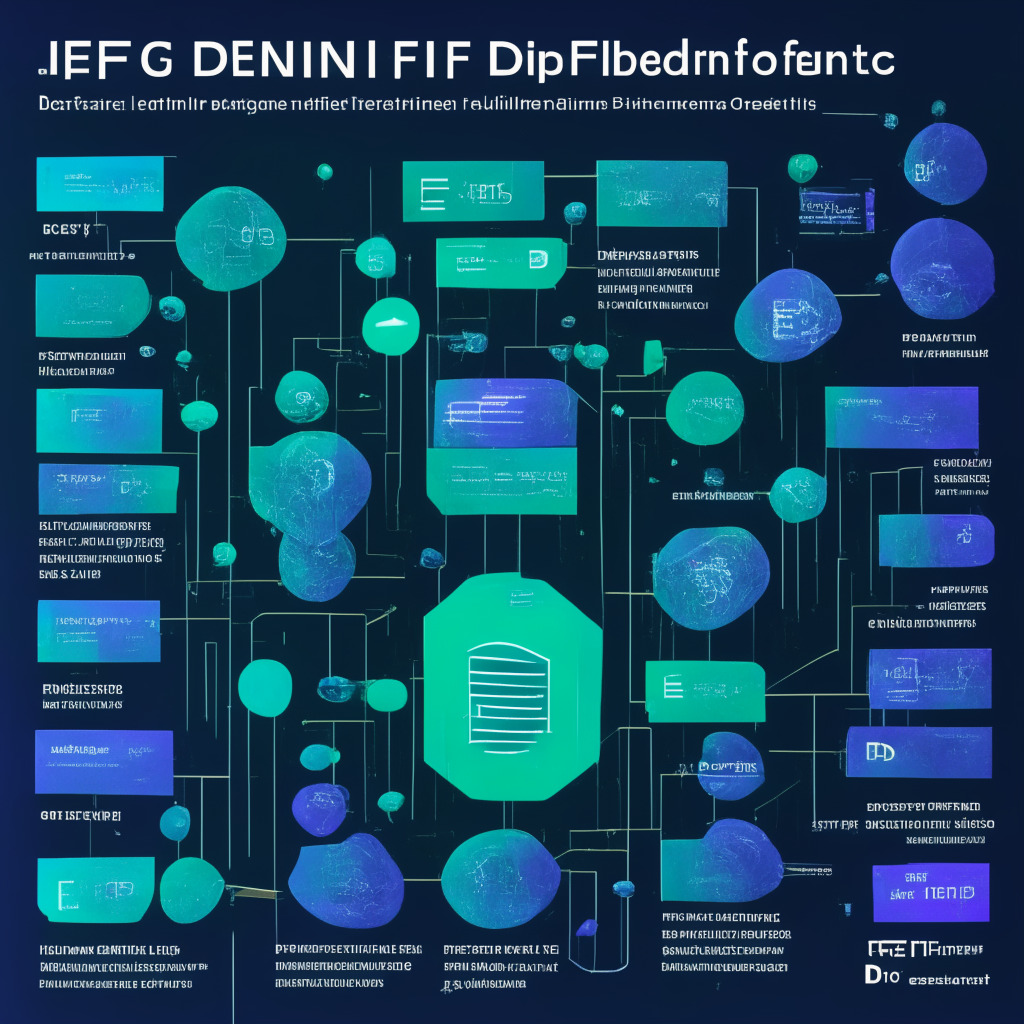deBridge is launching a feature to hasten interoperability between Solana and other blockchain platforms, allowing Solana users to integrate with EVM-based blockchains, like Arbitrum. This eliminates the need for risky derivative tokens and marks a historic moment in cross-chain technologies.
Search Results for: Opera
Belgium Forces Binance to Halt Operations: The Rising Trend of Crypto Regulatory Compliance
Belgium’s Financial Services and Markets Authority (FSMA) has ordered Binance to halt services due to violation of Belgian law by serving local customers from countries outside the EEA. This move seeks to combat money laundering and terrorism financing, with Binance expressing disappointment and ongoing collaboration with regulators.
Digital Pound Debate: Balancing Innovation, Interoperability, and Privacy Concerns
The UK government’s proposed digital pound has received mixed reactions, with concerns around user privacy, holding limits, and integration with cryptocurrencies for future-proofing. To succeed, public trust and understanding will be crucial, as the decision and implementation may not occur until at least 2025.
The Future of Purpose-Bound Money: Pros, Cons, and Interoperability Challenges
The Monetary Authority of Singapore is researching central bank digital currencies (CBDCs) and their use cases. A recent white paper explores the potential of purpose-bound money (PBM) and its components: a wrapper and a store of value. PBMs offer privacy and enable both public and private sectors to utilize digital currencies, highlighting the increasing potential and demand for digital currency options.
Binance’s Regulated Expansion in Kazakhstan: A New Era for Crypto Exchanges and Government Cooperation
Binance has launched a fully regulated brokerage in Kazakhstan, offering government-regulated cryptocurrency trading services. This move comes amid regulatory challenges faced by the exchange in the United States and the United Kingdom, showcasing Binance’s commitment to compliance and fostering growth in the crypto industry.
IMF’s Support for CBDCs: Will Ripple’s XRP Play a Key Role in Global Interoperability?
The IMF offers support to governments in developing Central Bank Digital Currencies (CBDCs) and creating a global platform for CBDC interoperability. Ripple Labs explores CBDC use cases, aided by the recognition of XRP’s cross-border payment capabilities by the IMF. Concerns arise as CBDCs development could lead to increased centralization and surveillance.
IMF’s Global CBDC Platform: Navigating Interoperability and New Challenges in the Digital Age
The IMF is supporting the development of Central Bank Digital Currencies (CBDCs) and creating a global platform for interoperability between countries. With around 114 countries actively researching CBDCs, the IMF aims to facilitate efficient transactions while addressing challenges such as privacy, surveillance risks, and economic impacts.
Binance’s Regulatory Dilemma: Compliance Cooperation or Struggles to Maintain Operations?
The UK’s FCA has cancelled permissions granted to Binance Markets Limited, following the company’s request. Binance is adapting to changing regulations by focusing on fewer European jurisdictions. As regulatory scrutiny increases, crypto exchanges must balance innovation and compliance to stay competitive and protect customers.
Three Arrows Capital Collapse: Co-founder’s Non-Cooperation Stalls Investigation
Liquidators of defunct hedge fund Three Arrows Capital seek a $10,000 daily fine on co-founder Kyle Davies for non-cooperation in investigating the firm’s collapse. Davies’ refusal has stalled the unwinding of the fund’s operations, raising questions about regulation, accountability, and jurisdiction in the blockchain future.
Regulating AI: Balancing Innovation with Generative Dangers and Global Cooperation
UN Secretary-General António Guterres joins the call for AI regulation, comparing its potential threat to humanity to nuclear war. European Parliament passes world’s first-ever AI legislation, while OpenAI CEO Sam Altman supports regulating AI through establishing a government office and standards for development.
Banks and Chainlink Team Up for Blockchain Interoperability: Possibilities and Security Risks
World’s largest banks, including Citi and BNP Paribas, are testing permissioned bank-owned blockchains under SWIFT’s guidance to enable communication with public blockchains like Ethereum. Chainlink’s technology will serve as the bridge, overcoming network fragmentation and ensuring secure information sharing across public and private chains.
Binance Ordered to Cease Operations in Nigeria: Assessing Market Impact & Future Regulatory Challenges
Nigeria’s SEC orders Binance to cease operations in the country, declaring them as “illegal” due to lack of registration and regulation. The commission warns investors of crypto-assets’ “extremely risky” nature and threatens further action against similar exchanges operating in Nigeria.
Unlocking IT Job Search Potential: Google Operators vs. Traditional Methods
Google search operators can refine IT job searches by specifying job titles, locations, and skill requirements. However, relying solely on them may limit opportunities; a well-rounded strategy should include industry-specific job boards, professional networks like LinkedIn, and proactive networking efforts.
SEC Actions Against Exchanges: Analyzing the Impact on Crypto Companies’ US Operations
The SEC’s actions against crypto firms like Coinbase and Binance have sparked debates on the future of these companies in the U.S. Some argue that regulatory pressures will bring clarity and benefit businesses, while others believe challenges could force firms to focus on more accessible jurisdictions, leaving smaller players behind.
Binance SEC Charges: Tai Chi Strategy vs Operation Chokepoint 2.0 Debate
The SEC has filed 13 charges against Binance, raising questions on whether the exchange used its “Tai Chi” strategy to evade regulators or if the SEC is implementing “Operation Chokepoint 2.0” to disrupt crypto industry growth. The outcome of this case will significantly impact future crypto regulation.
Evertas Crypto Insurance Expansion: Boon for Blockchain and Mining Operations
Evertas, a crypto insurance underwriter, has expanded its offerings by increasing coverage limits to $420 million and including mining operation coverage up to $200 million per policy, making it the highest available in the market. The firm aims to provide accessible and comprehensive insurance to the growing blockchain and cryptocurrency sectors.
Stablecoins: A Solution to Crypto’s Banking Crisis Amid Operation Chokepoint 2.0
Stablecoins may counter the impact of Operation Chokepoint on the crypto sector, providing a solution to the US banking crisis facing crypto companies. Leveraging stablecoins can minimize bank dependency and establish an autonomous parallel financial system, despite potential risks and regulatory challenges.
Crackdown on South Korean Crypto Scams: Uncovering $350M Fraudulent Operations & Trust Issues
South Korean police dismantled two cryptocurrency scams worth $350 million, affecting hundreds of victims. The first case involved a “virtual fashion items” marketplace, luring 435 victims into investing $333 million. The second scam swindled investors out of $27 million. These incidents raise concerns over the commitment of crypto businesses to customer protection and the effectiveness of regulations.
Russia Forgoes National Crypto Exchange for Regulated Operations: Pros, Cons, and Market Impact
Russian authorities abandon plans for a national cryptocurrency exchange, focusing instead on establishing regulations for platform development and operations. This move, supported by the Ministry of Finance and Central Bank, aims to reduce risks and encourage crypto adoption in the country, while addressing market dominance and security concerns.
Global Crypto Asset Regulation: The Urgent Need for Cooperation and Coordination
The World Economic Forum’s white paper emphasizes the urgency for international cooperation in crypto asset regulation to prevent ambiguity and inconsistent enforcement. With the unique nature of digital currencies, a globally coordinated framework could foster innovation while mitigating risks in the expanding crypto market.
US Crypto Crackdowns: CFTC vs SEC, Challenges, and the Future of Offshore Operations
The CFTC has warned crypto companies not to perceive it as a more lenient regulator compared to the SEC, as around 20% of its portfolio now consists of cryptocurrency cases. Both regulatory bodies are committed to understanding and regulating the emerging crypto market, debunking any notion of a “light touch” approach.
MultiversX & Opera Partnership: Revolutionizing Web3 Access or Facing Challenges Ahead?
MultiversX and Opera’s collaboration aims to provide seamless integration of the growing MultiversX ecosystem within the browser interface, offering accessible entry into the Web3 landscape. Users can explore the decentralized internet, transact using native tokens, connect to NFTs, and access decentralized applications, simplifying Web3 access in a familiar way.
Lagrange Labs’ $4M Funding: Interoperability in DeFi and the Security Challenges Ahead
Zero-knowledge startup Lagrange Labs raised $4 million in pre-seed funding for secure blockchain interoperability development, enabling decentralized apps (dApps) to function across multiple networks. However, supporting multi-chain dApps could expose unaccounted risks and vulnerabilities, necessitating careful assessment.
Coinbase Cloud Joins Chainlink as Node Operator: Boosting Decentralization and Smart Contract Security
Coinbase Cloud announces a partnership with blockchain oracle network Chainlink, operating as a node operator to improve decentralization and smart contract reliability. By leveraging its global infrastructure and blockchain data expertise, Coinbase Cloud aims to enhance Chainlink network’s security and reliability, connecting smart contracts to data and systems.
Shocking $15M Crypto Scam Exposed: How Phishing Operation Mimicked HitBTC Exchange
A scammer or group used a sophisticated phishing method to steal approximately $15 million in cryptocurrency on a fake HitBTC exchange platform. The fake website gained unauthorized access to users’ holdings, compromising their assets. It is crucial to verify the browser’s URL to combat such attacks.
DLT in Securities Markets: $100 Billion Savings, Challenges, and the Need for Global Cooperation
The Global Financial Markets Association highlights the potential of distributed ledger technology (DLT) in securities markets, suggesting that its implementation could result in over $100 billion in annual savings and enhance industry growth and innovation. Embracing DLT opportunities in areas like collateral management, asset tokenization, and sovereign bond markets with robust regulatory oversight is crucial for realizing its full potential.
2023 Crypto Crackdown: Operation Choke Point 2.0 vs Banking Industry Collapse
The US regulators’ crackdown on the crypto market has led to the closure of Silvergate, Silicon Valley Bank, and Signature, while prominent figures criticize scapegoating cryptocurrencies for the banking crisis. The House Financial Services Committee investigates potential coordinated efforts to de-bank the crypto market as the banking crisis worsens.
Ethereum’s Shanghai Upgrade: Selling Pressure Offset by Staking Confidence & CEX Operations
Ethereum’s Shanghai upgrade, which enabled staking redemptions for the first time, has been a “non-event” with ETH staking deposits surpassing withdrawals, pushing staked ETH to a new all-time high of 19.55 million. The majority of withdrawn ETH were sent to centralized exchanges for internal operations, signaling strong overall confidence from investors in the network and the asset.
Paxful Resumes Operations Amid Controversy: Lessons in Crypto Platform Stability and Security
Paxful, a leading P2P cryptocurrency exchange, has resumed operations after a month-long suspension due to technical issues. The platform faced controversies during the suspension, including allegations of money laundering and avoiding US sanctions. As crypto markets evolve, security and stability remain top concerns for users.
ReneVerse’s Multichain Technology: Revolutionizing Web3 Gaming and Asset Interoperability
ReneVerse, a Singapore-based web3 gaming firm, incorporates innovative multichain technology to enhance cross-blockchain communication and asset interoperability. This allows developers to optimize game scalability, security, performance, and offer players unprecedented content variety and gaming versatility, while expanding the web3 gaming possibilities.
Operation SpecTor Takedown: Balancing Privacy, Security & Blockchain’s Future
Europol’s Operation SpecTor dismantled Monopoly Market, arresting 288 individuals and seizing cash, crypto, and other illegal items. This highlights the dark web’s evolving landscape and raises questions about privacy, surveillance, and the appropriate use of blockchain technology within the crypto community.
Nolus DeFi Lease: Revolutionizing Money Markets with $2.5M Funding, Interoperability & LSDs
The Nolus DeFi Lease aims to address inefficiencies in DeFi money markets, securing $2.5 million in pre-seed and seed funding. Offering up to 150% financing and lowering margin call risks, Nolus enhances lending options and widens access to leveraged assets.































